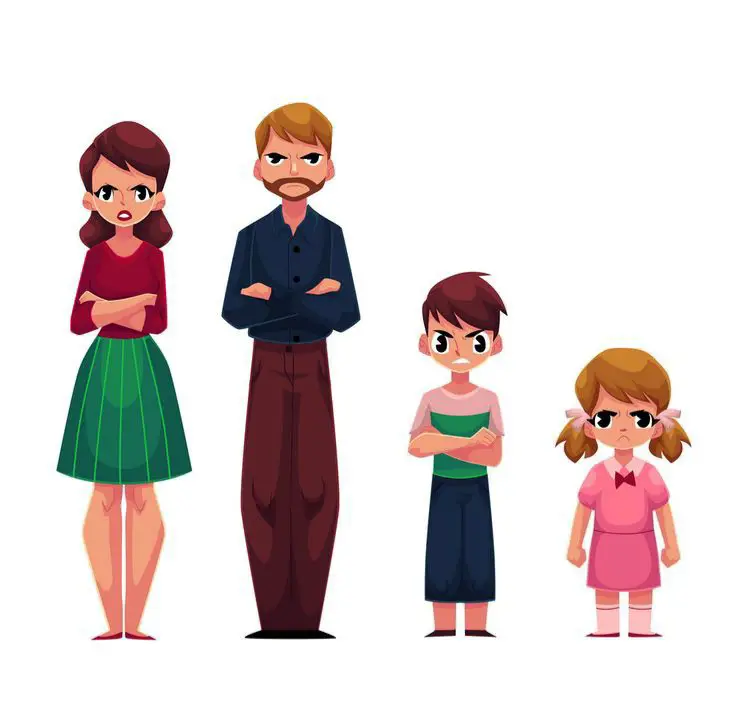The therapeutic solution to healing that provides a neutral ground for families to navigate conflicts, fostering understanding and empathy.
Family conflicts and disputes are an inevitable aspect of human relationships, stemming from differences in values, beliefs, and personalities. These conflicts can escalate, causing emotional distress, strained relationships, and long-lasting repercussions. However, therapy emerges as a potential solution to navigate and resolve these intricate familial issues. This article looks into the ways in which therapy offers a promising path towards healing familial discord.
To comprehend the efficacy of therapy in resolving family conflicts, it's crucial to grasp the intricate dynamics at play within familial relationships. Families comprise individuals with distinct personalities, backgrounds, and experiences, often leading to divergent perspectives and conflicting interests. Additionally, unresolved past traumas, communication barriers, and unmet emotional needs can exacerbate tensions within the family unit, perpetuating a cycle of discord.
Therapy provides a structured and supportive environment for families to address underlying issues, enhance communication, and foster understanding. Family therapy, in particular, offers a holistic approach that involves all members in the process of reconciliation and healing. By facilitating open dialogue and encouraging empathy, therapists can help families uncover root causes of conflicts and develop constructive strategies for resolution.
One of the primary benefits of therapy in resolving family disputes lies in its ability to enhance communication skills among family members. Effective communication forms the cornerstone of healthy relationships, enabling individuals to express their thoughts, feelings, and concerns in a respectful manner. Through therapy, families can learn active listening techniques, assertive communication strategies, and conflict resolution skills, thus promoting harmonious interactions and reducing the likelihood of future conflicts.
Many family conflicts stem from unresolved traumas and past experiences that continue to influence present behavior and interactions. Therapy provides a safe space for individuals to explore and process these traumatic experiences, allowing for emotional healing and closure. By addressing underlying trauma, families can mitigate the impact of past wounds on their current relationships and work towards building a more resilient and cohesive familial unit.
Central to the therapeutic process is the cultivation of empathy and understanding among family members. Through guided exercises and interventions, therapists encourage individuals to see situations from each other's perspectives, fostering compassion and empathy. By acknowledging and validating each other's experiences, families can bridge the gap of misunderstanding and resentment, paving the way for reconciliation and forgiveness.
Another essential aspect of therapy in resolving family disputes is the establishment of healthy boundaries. Boundaries delineate individual autonomy, responsibilities, and limits within the family system, preventing the enmeshment and codependency that often contribute to conflicts. Through therapy, families can identify and negotiate boundaries that respect each member's needs and promote mutual respect, thus fostering a more balanced and harmonious family dynamic.
Conflict is an inherent part of human relationships, but it's how we manage and resolve conflicts that determines the health of those relationships. Therapy equips families with effective conflict resolution strategies, empowering them to address disagreements constructively and collaboratively. By fostering a climate of mutual respect and compromise, families can navigate conflicts without resorting to hostility or aggression, strengthening their bonds in the process.
In conclusion, therapy emerges as a transformative solution to the complex and multifaceted issues underlying family wrangles and disputes. By addressing communication breakdowns, unresolved trauma, and dysfunctional patterns, therapy empowers families to heal past wounds, foster understanding, and cultivate healthier relationships. Through commitment, openness, and guidance from skilled therapists, families can embark on a journey of reconciliation, resilience, and newfound harmony.
To comprehend the efficacy of therapy in resolving family conflicts, it's crucial to grasp the intricate dynamics at play within familial relationships. Families comprise individuals with distinct personalities, backgrounds, and experiences, often leading to divergent perspectives and conflicting interests. Additionally, unresolved past traumas, communication barriers, and unmet emotional needs can exacerbate tensions within the family unit, perpetuating a cycle of discord.
Therapy provides a structured and supportive environment for families to address underlying issues, enhance communication, and foster understanding. Family therapy, in particular, offers a holistic approach that involves all members in the process of reconciliation and healing. By facilitating open dialogue and encouraging empathy, therapists can help families uncover root causes of conflicts and develop constructive strategies for resolution.
One of the primary benefits of therapy in resolving family disputes lies in its ability to enhance communication skills among family members. Effective communication forms the cornerstone of healthy relationships, enabling individuals to express their thoughts, feelings, and concerns in a respectful manner. Through therapy, families can learn active listening techniques, assertive communication strategies, and conflict resolution skills, thus promoting harmonious interactions and reducing the likelihood of future conflicts.
Many family conflicts stem from unresolved traumas and past experiences that continue to influence present behavior and interactions. Therapy provides a safe space for individuals to explore and process these traumatic experiences, allowing for emotional healing and closure. By addressing underlying trauma, families can mitigate the impact of past wounds on their current relationships and work towards building a more resilient and cohesive familial unit.
Central to the therapeutic process is the cultivation of empathy and understanding among family members. Through guided exercises and interventions, therapists encourage individuals to see situations from each other's perspectives, fostering compassion and empathy. By acknowledging and validating each other's experiences, families can bridge the gap of misunderstanding and resentment, paving the way for reconciliation and forgiveness.
Another essential aspect of therapy in resolving family disputes is the establishment of healthy boundaries. Boundaries delineate individual autonomy, responsibilities, and limits within the family system, preventing the enmeshment and codependency that often contribute to conflicts. Through therapy, families can identify and negotiate boundaries that respect each member's needs and promote mutual respect, thus fostering a more balanced and harmonious family dynamic.
Conflict is an inherent part of human relationships, but it's how we manage and resolve conflicts that determines the health of those relationships. Therapy equips families with effective conflict resolution strategies, empowering them to address disagreements constructively and collaboratively. By fostering a climate of mutual respect and compromise, families can navigate conflicts without resorting to hostility or aggression, strengthening their bonds in the process.
In conclusion, therapy emerges as a transformative solution to the complex and multifaceted issues underlying family wrangles and disputes. By addressing communication breakdowns, unresolved trauma, and dysfunctional patterns, therapy empowers families to heal past wounds, foster understanding, and cultivate healthier relationships. Through commitment, openness, and guidance from skilled therapists, families can embark on a journey of reconciliation, resilience, and newfound harmony.


























